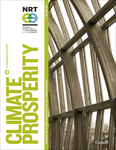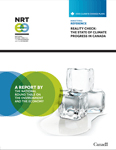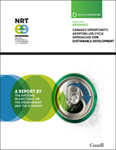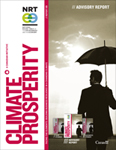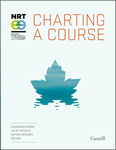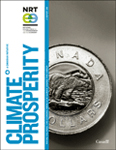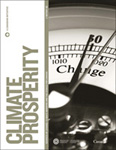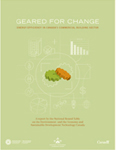Life Cycle Approaches – Letter to the Minister
March 30, 2012
The Honorable Peter Kent
Minister
Environment Canada
Minister’s Office
10 Wellington Street
Gatineau (Québec) K1A 0H3
Dear Minister,
The National Round Table on the Environment and the Economy (NRT) is pleased to provide you with its advisory report on Life Cycle Approaches to Sustainable Development in response to your Ministerial Reference letter of March 11, 2011. We are pleased you gave us the opportunity to assist you in your responsibilities as Minister of Environment and hope our work advances your consideration of this topic. The NRT believes the issue you identified for us to research and report directly to you is an important one for Canada’s future prosperity.
Our report is the product of extensive research and convening we conducted over the course of 2011 and early 2012. We report to you on life cycle approaches (LCAs) underway in Canada and abroad, clarify the use and application of LCAs in both the private and public sectors, and offer practical priorities and recommendations for further action by the Government of Canada.
We actively engaged public servants from your department as well as across the federal government in both scoping and reviewing our work to ensure it was relevant and useful to current and anticipated government needs. We also sought the input of key private sector companies active in the LCA field, academic experts as well as both national and international practitioners – all with the aim of giving you, your department, and the government the most relevant information and advice to assist you in your deliberations.
Specifically, your letter to the NRT asked three questions on the application of life cycle approaches to sustainable development:
What would be the implications of applying this kind of approach?
The NRT sees many benefits for Canada from applying life cycle approaches generally to sustainable development and to particular issues. Overall, it offers the prospect of improved economic competitiveness and better environmental stewardship of our resources and in design, production, and consumption of goods and materials. On a specific level, it would enable us to better deal with current and emerging trade and market access risks from Europe, the United States, and Asia-Pacific. It would enhance innovation and productivity within the private sector as they apply life cycle approaches to their internal operations and across supply chains. It would also improve the efficiency and cost-effectiveness of the federal government’s management of its enormous asset base. The NRT sees clear opportunities for Canadian competitiveness at both the international and firm levels, and on behalf of taxpayers and workers, in adopting LCAs at the policy, program, and product levels.
Equally there are implications or risks in not doing so. Canadian commodities, such as bitumen from the oil sands, face possible restrictive measures due to life-cycle related regulatory initiatives by foreign governments. Canada is at risk from this new dynamic, as a strong resource-based economy reliant on open markets and trading rules. We believe being more actively engaged in the development and application of life cycle approaches in national and international policy development will serve our interests best.
Is the Life Cycle Approach a useful technique for integrating economic and environmental costs so as to recognize the real value of environmental goods and services?
Yes, it is. There are many types of LCAs and our report distinguishes between them. We define them and offer practical examples as to how they could usefully be implemented. LCA application in the private sector is different from how it applies in the public sector; in turn, this is different, for example, from how it applies to the retail versus the resource sectors. In many ways, LCAs represent an evolving tool which is why Canada needs to invest more systematically in their development and application within government and private sector. Our work identified challenges to their adoption by both the private and public sectors. Awareness of their benefits is a common issue in both areas. Even then, capacity and expertise to implement them must also be addressed.
The NRT considers that these are not just challenges to be overcome, but markers to chart a path forward to use increasingly life cycle approaches. Innovation in product design and supply chain efficiencies by firms occurs regularly. Innovation in public policy development and delivery also takes place. Life cycle approaches are an effective way to integrate economic and environmental cost considerations. Support for such innovation and leadership through the creation of a Canadian life cycle inventory database, institutionalized engagement with the private sector by the government, and more training for public servants in LCA opportunities and application would all help Canada lead.
Is there a way to advance a Life Cycle Approach to environmental stewardship in Canada that supports economic competitiveness?
Yes, there are several ways. The NRT believes life cycle approaches can be valuable tools in doing just that. The most immediate is to recognize the growing trade risks posed by LCAs in other countries. Consumers are not yet driving this phenomenon here in Canada but are more and more attuned to what it means. There may come a time where government will have to step in to regulate or otherwise monitor product and marketing declarations by companies on behalf of consumers. Accepting that environmental considerations will play an increasing role in government decision-making and private sector investment means Canada must more fully come to grips with the potential of life cycle approaches in sustainable development.
The NRT was told the most fundamental way to advance this approach is through focused investment in LCA tools, techniques, data, and information, along with more consistent engagement with the private sector. Canada needs a top-notch life cycle database to build a strong, verifiable, and usable information platform that reflects Canadian realities. We need to more actively engage with international organizations in standard setting in this field. And we need to create public/private partnerships where government can directly support the private sector in its needs. Our recommendations address each of these ways to advance LCAs to environmental stewardship so as to support economic competitiveness. We stress that this is a whole-of-government requirement, not just the responsibility of Environment Canada.
Our report leads to the following key conclusions for your consideration:
- Canada needs to develop a renewed LCA capacity and expertise in both the private and public sectors.
- Canada needs to invest in LCA information resources that reflect the Canadian reality.
- Canada needs to play a proactive role internationally in the development of life cycle standards.
- Canada needs to lead and innovate in developing and applying public sector LCA policies and practices.
Together, these actions will put Canada on a stronger, more effective track to take advantage of the increasingly accepted opportunity and reality of life cycle approaches to foster greater environmental stewardship while leading to improved economic competitiveness.
The NRT is mindful that there are some financial implications for the government in how it moves ahead on this issue. We sought to provide recommendations that are both practical and manageable to implement utilizing existing resources and policy approaches as much as possible.
LCAs are here to stay. The NRT believes that we will see growing use of them by other governments and by firms and sectors within Canada and by our most important trading partners. Identifying this as an important issue to be addressed, as you have done with your reference to the NRT, will help Canada consider how best to do so.
On behalf of the National Round Table on the Environment and the Economy,
Sincerely,
Robert Slater
Vice Chair
David McLaughlin
President & CEO






